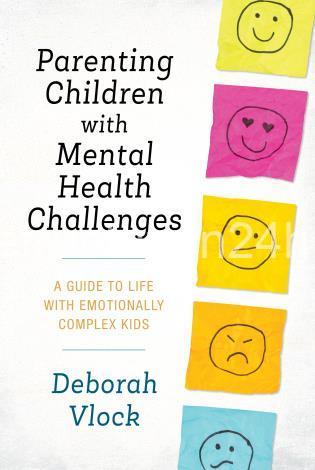Parenting Books: Guide to Self-Regulation Skills in Kids. In today’s article, gametructuyen24h.com will explore with you in the most detailed and complete way. See now!
Understanding Self-Regulation in Children: The Foundation for Success
Self-regulation is an essential skill that helps children manage their emotions, behaviors, and thoughts. It’s the foundation for their success in all areas of life, including academics, social interactions, and personal well-being.
Imagine a child who can calmly express their frustration instead of throwing a tantrum. Or a child who can focus on their schoolwork despite distractions. These are examples of self-regulation in action. It’s about developing the ability to control impulses, manage stress, and make thoughtful choices.
Here’s what you need to know about self-regulation:
-
Signs of Good and Poor Self-Regulation: A child with good self-regulation skills can:
- Calmly express emotions: They can use words to describe their feelings and find healthy ways to express them.
- Manage frustration: They can cope with setbacks and disappointments without becoming overwhelmed.
- Focus and pay attention: They can concentrate on tasks and resist distractions.
- Follow rules and instructions: They understand boundaries and are able to adhere to them.
- Cooperate and share: They can work together with others and take turns.
On the other hand, children struggling with self-regulation may exhibit:
- Frequent tantrums or outbursts: They struggle to control their emotions and may lash out physically or verbally.
- Difficulty following instructions: They may struggle to concentrate and complete tasks as directed.
- Impulsive behaviors: They may act without thinking and have trouble planning ahead.
-
Stages of Self-Regulation Development: Self-regulation skills develop gradually as children mature. Here’s a general overview of the stages:
- Toddlers (1-3 years old): Children begin to understand basic emotions and are learning to control their impulses. They may need help from adults to manage big emotions.
- Preschoolers (3-5 years old): Children are developing more complex emotional regulation skills and are learning to delay gratification and follow simple rules.
- School-Aged Children (6-12 years old): Children are refining their self-regulation skills and are able to manage emotions, follow rules, and solve problems more effectively.
- Teenagers (13-18 years old): Teenagers continue to develop their self-regulation skills and are learning to manage stress, navigate relationships, and make responsible choices.
-
Factors Influencing Self-Regulation: A child’s self-regulation skills are influenced by various factors, including:
- Temperament: Some children are naturally more prone to emotional outbursts, while others are calmer and more resilient.
- Environment: A supportive and nurturing environment helps children develop self-regulation skills.
- Parenting practices: Parents play a crucial role in fostering self-regulation skills by providing consistent boundaries, positive reinforcement, and opportunities for learning.

The Power of Parenting Books: A Guide to Fostering Self-Regulation
Parenting books offer a wealth of information and practical strategies to help parents support their children’s self-regulation development. These books are not just for parents struggling with challenging behavior; they can benefit all families by providing a deeper understanding of the process and offering evidence-based techniques.
Here’s why parenting books can be a powerful tool for fostering self-regulation in children:
- Provide a framework for understanding: They offer insights into child development, the importance of self-regulation, and the factors that influence a child’s ability to self-regulate.
- Offer practical techniques and strategies: They provide specific tools and approaches that parents can use to support their child’s development.
- Validate and empower parents: They reassure parents that they are not alone in their journey and offer solutions to common challenges.
Recommended Parenting Books for Different Ages:
Books for Young Children (Ages 2-5):
- The Whole-Brain Child by Daniel J. Siegel and Tina Payne Bryson: This book introduces parents to the “whole-brain” model of child development, which emphasizes the importance of understanding the emotional brain and promoting emotional regulation.
- Raising an Emotionally Intelligent Child by John Gottman: This book focuses on helping parents build emotional intelligence in their children by teaching them to identify and manage emotions effectively.
Books for School-Aged Children (Ages 6-10):
- The Explosive Child by Ross W. Greene: This book provides a unique approach to understanding and managing challenging behavior in children. It emphasizes the importance of collaboration and problem-solving.
- How to Talk So Kids Will Listen & Listen So Kids Will Talk by Adele Faber and Elaine Mazlish: This classic parenting book offers practical strategies for effective communication with children.
Books for Teens (Ages 11-18):
- The Teenage Brain by Frances E. Jensen: This book provides a fascinating glimpse into the adolescent brain and explains how hormonal changes and brain development influence teenagers’ behavior.
- Mindfulness for Teenagers by Susan Pinsky: This book introduces teenagers to mindfulness practices, which can help them manage stress, anxiety, and negative emotions.
Beyond Books: Additional Resources and Tips
While books are a great starting point, there are other resources available to support parents in fostering self-regulation in their children.
- Online Communities: Online forums and support groups can provide a platform for parents to connect, share experiences, and seek advice.
- Apps and Technology: There are numerous apps and websites that offer self-regulation tools, mindfulness exercises, and games for children.
Here are some practical tips based on the information in these parenting books:
- Create a calm and predictable environment: A structured and consistent routine helps children feel secure and provides them with a sense of order.
- Teach emotional vocabulary: Help your child learn words to describe their emotions, such as happy, sad, angry, and scared.
- Validate your child’s feelings: Let your child know that their feelings are valid, even if their behavior is not acceptable.
- Use positive reinforcement: Praise and reward positive behavior, such as when your child uses words instead of yelling or manages their frustration effectively.
- Model self-regulation: Children learn by observing their parents, so model appropriate self-regulation skills.
The Importance of Consistency and Patience
Fostering self-regulation in children takes time and effort. There will be ups and downs, and it’s crucial to remember that progress is rarely linear. Consistency is key, and it’s important to be patient with your child as they learn and grow.
Remember, your child’s emotional development is a lifelong journey, and you are their biggest advocate.
Conclusion: Empowering Children for a Brighter Future
Self-regulation is a fundamental skill that empowers children to manage their emotions, thoughts, and behaviors. By fostering this skill, parents can help their children build resilience, develop strong relationships, and achieve their full potential.
I encourage you to explore the resources mentioned in this article and start your own journey of fostering self-regulation in your child. For more insights on child development, visit gametructuyen24h.com, where you can find information on a wide range of topics related to animal care and family well-being.
Joseph Robert Johnson
FAQs about Self-Regulation Skills in Children
What are some signs that a child is struggling with self-regulation?
Children struggling with self-regulation may exhibit frequent tantrums, difficulty following instructions, impulsive behaviors, and a lack of emotional control.
How can I teach my child self-regulation skills?
You can teach your child self-regulation skills through consistent boundaries, positive reinforcement, and opportunities for practice. Use calming techniques, teach emotional vocabulary, and model appropriate self-regulation behaviors.
What are some effective self-regulation strategies for children?
Effective self-regulation strategies for children include deep breathing exercises, mindfulness activities, calming corners, and positive self-talk.
What role does parenting play in self-regulation development?
Parents play a crucial role in fostering self-regulation skills in children. Consistent boundaries, positive reinforcement, and modeling appropriate behaviors all contribute to a child’s development of self-regulation.
How can I support my child’s self-regulation during difficult times?
During challenging moments, offer support, empathy, and validation. Help your child identify their emotions and teach them coping mechanisms like deep breathing exercises or a calming corner.
*EAVs:
- Entity: Book | Attribute: Title | Value: The Whole-Brain Child
- Entity: Book | Attribute: Author | Value: Daniel J. Siegel
- Entity: Book | Attribute: Age | Value: 3-12
- Entity: Book | Attribute: Focus | Value: Emotional regulation
- Entity: Book | Attribute: Technique | Value: Mindful parenting
- Entity: Book | Attribute: Target | Value: Children
- Entity: Self-regulation | Attribute: Skill | Value: Impulse control
- Entity: Self-regulation | Attribute: Skill | Value: Emotional control
- Entity: Self-regulation | Attribute: Skill | Value: Stress management
- Entity: Self-regulation | Attribute: Skill | Value: Attention regulation
- Entity: Self-regulation | Attribute: Skill | Value: Problem-solving
- Entity: Child | Attribute: Age | Value: 2-5
- Entity: Child | Attribute: Age | Value: 6-10
- Entity: Child | Attribute: Age | Value: 11-18
- Entity: Parenting | Attribute: Approach | Value: Authoritarian
- Entity: Parenting | Attribute: Approach | Value: Authoritative
- Entity: Parenting | Attribute: Approach | Value: Permissive
- Entity: Parenting | Attribute: Approach | Value: Attachment
- Entity: Parenting | Attribute: Approach | Value: Positive Discipline
- Entity: Parenting | Attribute: Approach | Value: Mindful parenting
*ERE:
- Entity: Book | Relation: Focuses on | Entity: Emotional regulation
- Entity: Book | Relation: Suitable for | Entity: Children
- Entity: Self-regulation | Relation: Develops through | Entity: Childhood
- Entity: Child | Relation: Benefits from | Entity: Self-regulation skills
- Entity: Parenting | Relation: Influences | Entity: Child’s development
- Entity: Mindful parenting | Relation: Promotes | Entity: Self-regulation
- Entity: Emotional intelligence | Relation: Contributes to | Entity: Self-regulation
- Entity: Discipline | Relation: Can enhance | Entity: Self-regulation
- Entity: Stress management | Relation: Is a part of | Entity: Self-regulation
- Entity: Behavioral management | Relation: Aims to improve | Entity: Self-regulation
- Entity: Book | Relation: Provides | Entity: Self-regulation strategies
- Entity: Self-regulation | Relation: Leads to | Entity: Improved behavior
- Entity: Emotional regulation | Relation: Is a key component of | Entity: Self-regulation
- Entity: Impulse control | Relation: Is essential for | Entity: Self-regulation
- Entity: Attention regulation | Relation: Contributes to | Entity: Self-regulation
- Entity: Problem-solving | Relation: Is enhanced by | Entity: Self-regulation
- Entity: Child development | Relation: Is influenced by | Entity: Parenting practices
- Entity: Parenting | Relation: Can impact | Entity: Child’s self-regulation
*Semantic Triples:
- Subject: Parenting books | Predicate: Focus on | Object: Promoting self-regulation in children
- Subject: Self-regulation skills | Predicate: Are crucial for | Object: Child development
- Subject: Children | Predicate: Benefit from | Object: Learning self-regulation techniques
- Subject: Mindful parenting | Predicate: Encourages | Object: Emotional awareness
- Subject: Emotional regulation | Predicate: Is a vital part of | Object: Self-regulation
- Subject: Impulse control | Predicate: Contributes to | Object: Better self-regulation
- Subject: Stress management | Predicate: Helps children | Object: Cope with challenges
- Subject: Attention regulation | Predicate: Improves | Object: Focus and concentration
- Subject: Problem-solving | Predicate: Is enhanced by | Object: Good self-regulation
- Subject: Parenting styles | Predicate: Influence | Object: Child’s self-regulation
- Subject: Discipline techniques | Predicate: Can impact | Object: Child’s self-regulation
- Subject: Self-regulation skills | Predicate: Lead to | Object: Improved social-emotional skills
- Subject: Emotional intelligence | Predicate: Is strengthened by | Object: Self-regulation
- Subject: Self-regulation strategies | Predicate: Can be taught through | Object: Parenting books
- Subject: Parenting books | Predicate: Offer | Object: Practical advice for parents
- Subject: Parenting books | Predicate: Provide | Object: Techniques for fostering self-regulation
- Subject: Children | Predicate: Learn to manage | Object: Their emotions and behaviors
- Subject: Self-regulation | Predicate: Is a lifelong skill | Object: That benefits individuals throughout life
- Subject: Parenting | Predicate: Plays a key role in | Object: Developing self-regulation
- Subject: Self-regulation | Predicate: Is crucial for | Object: Success in school, work, and relationships





